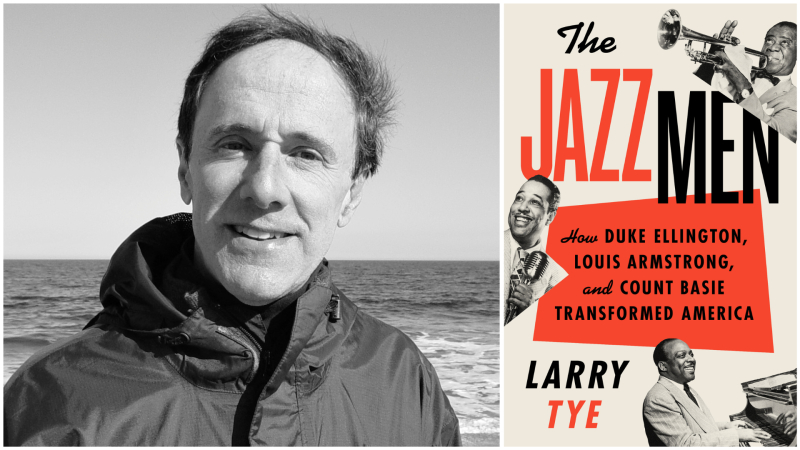In a speech written for the 1964 Berlin Jazz Festival, Martin Luther King, Jr. said, “much of the power of our Freedom Movement in the United States has come from this music.” King considered jazz music “triumphant” — and this belief is rooted in the widespread popularity of three men: Louis Armstrong, Duke Ellington and Count Basie, according to author Larry Tye. Respectively known as Satchmo, Duke and the Count, the three men were, Tye writes, “symbols of American culture on par with Coca-Cola and Mickey Mouse.” He profiles the trio in his new book, “The Jazzmen.” In it, he pieces together over 250 interviews, including family members and former bandmates, to illustrate how their appeal among both Black and white audiences paved the way for the Civil Rights Movement. Tye joins us to share more.
How Jazz Shaped the Civil Rights Movement

Larry Tye's new book is "The Jazzmen: How Duke Ellington, Louis Armstrong, and Count Basie Transformed America." (Photos courtesy of Larry Tye)
Guests:
Larry Tye, journalist; author, "The Jazzmen: How Duke Ellington, Louis Armstrong, and Count Basie Transformed America"
Sponsored